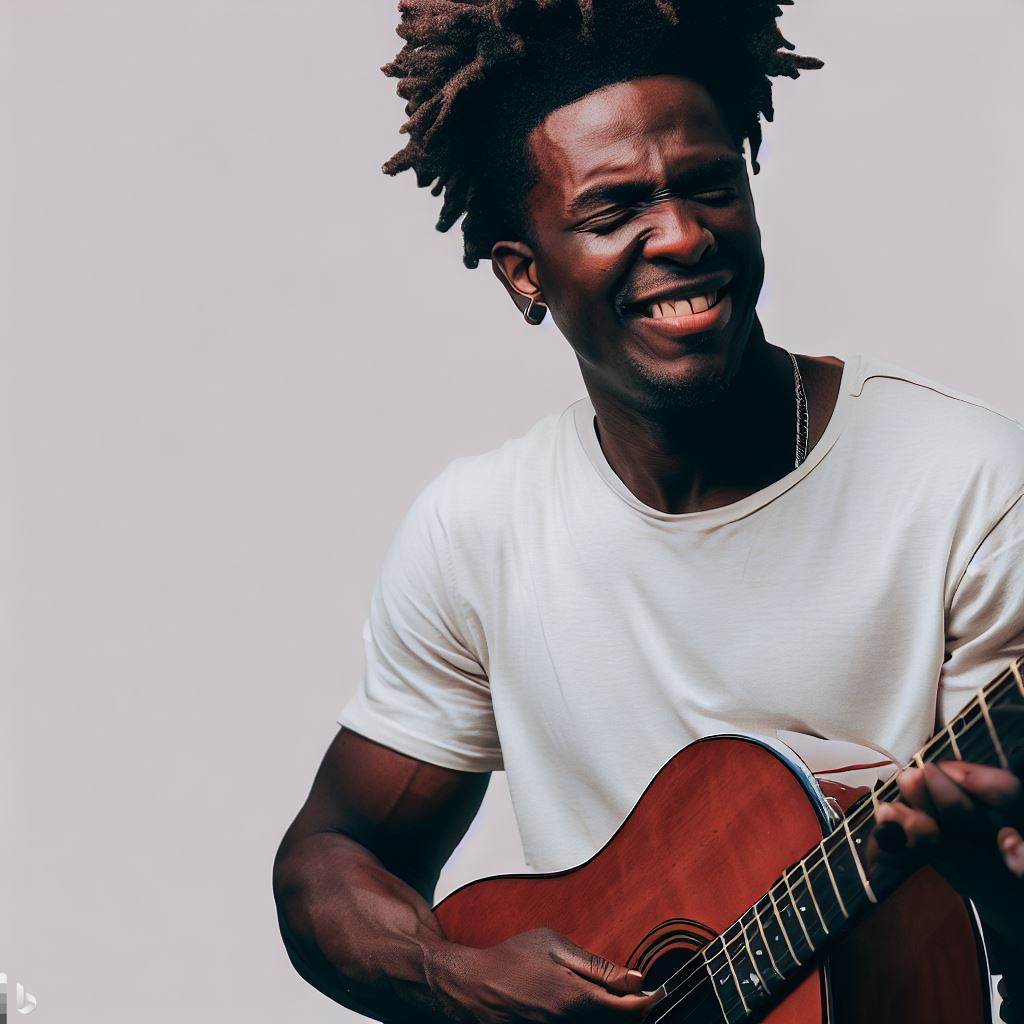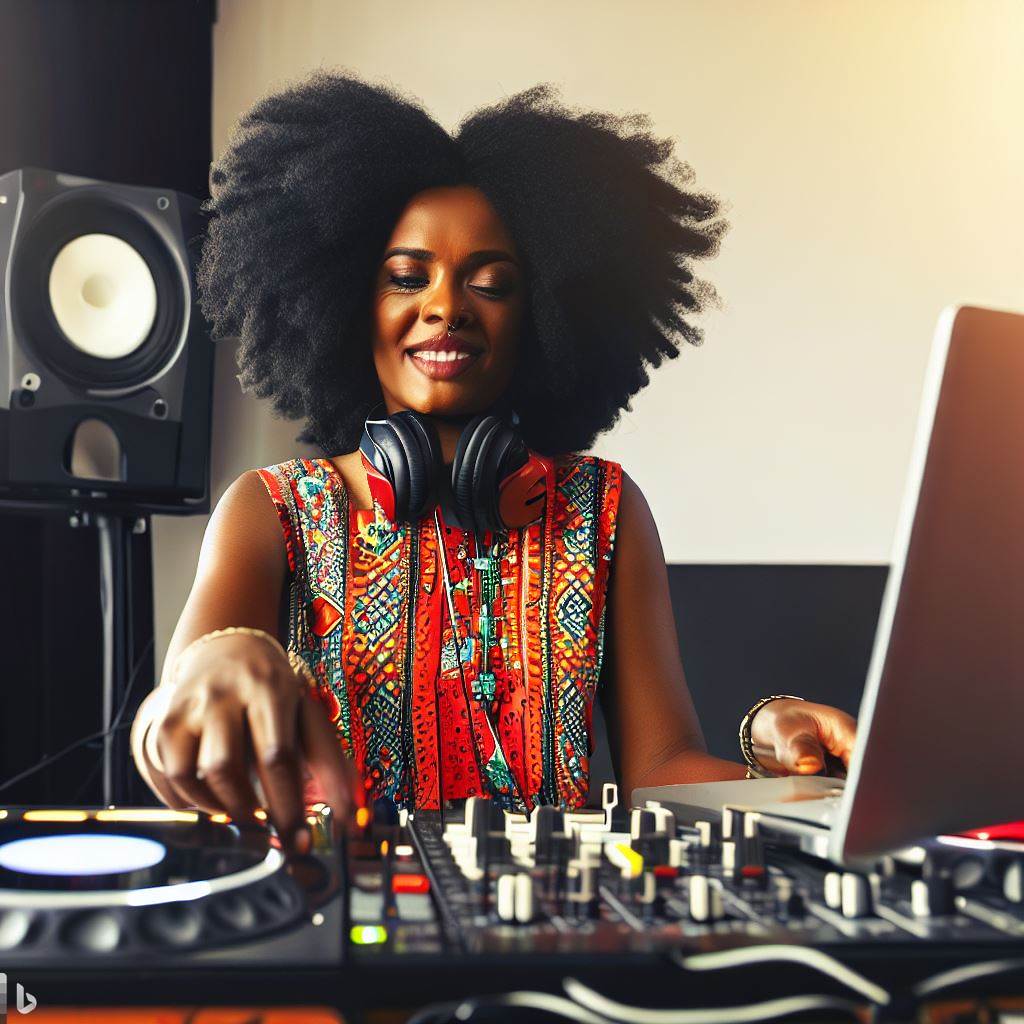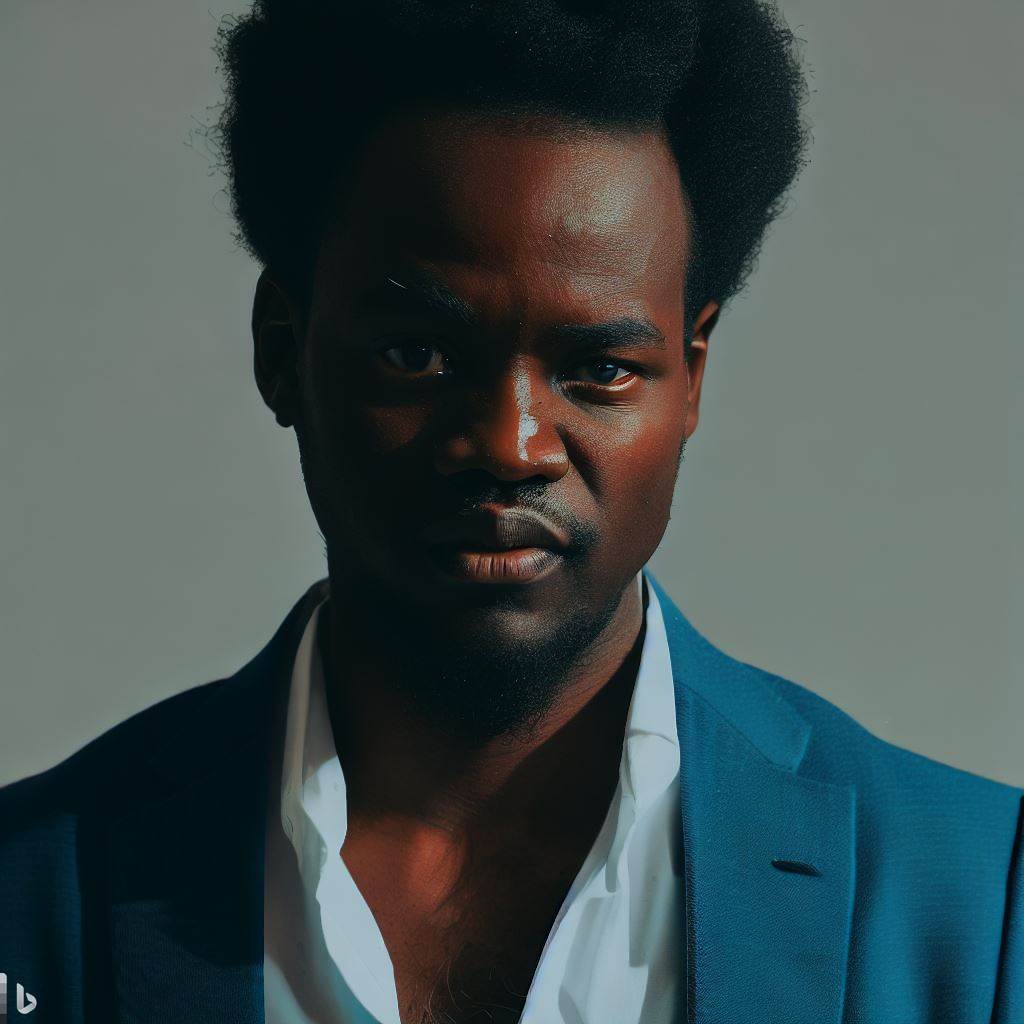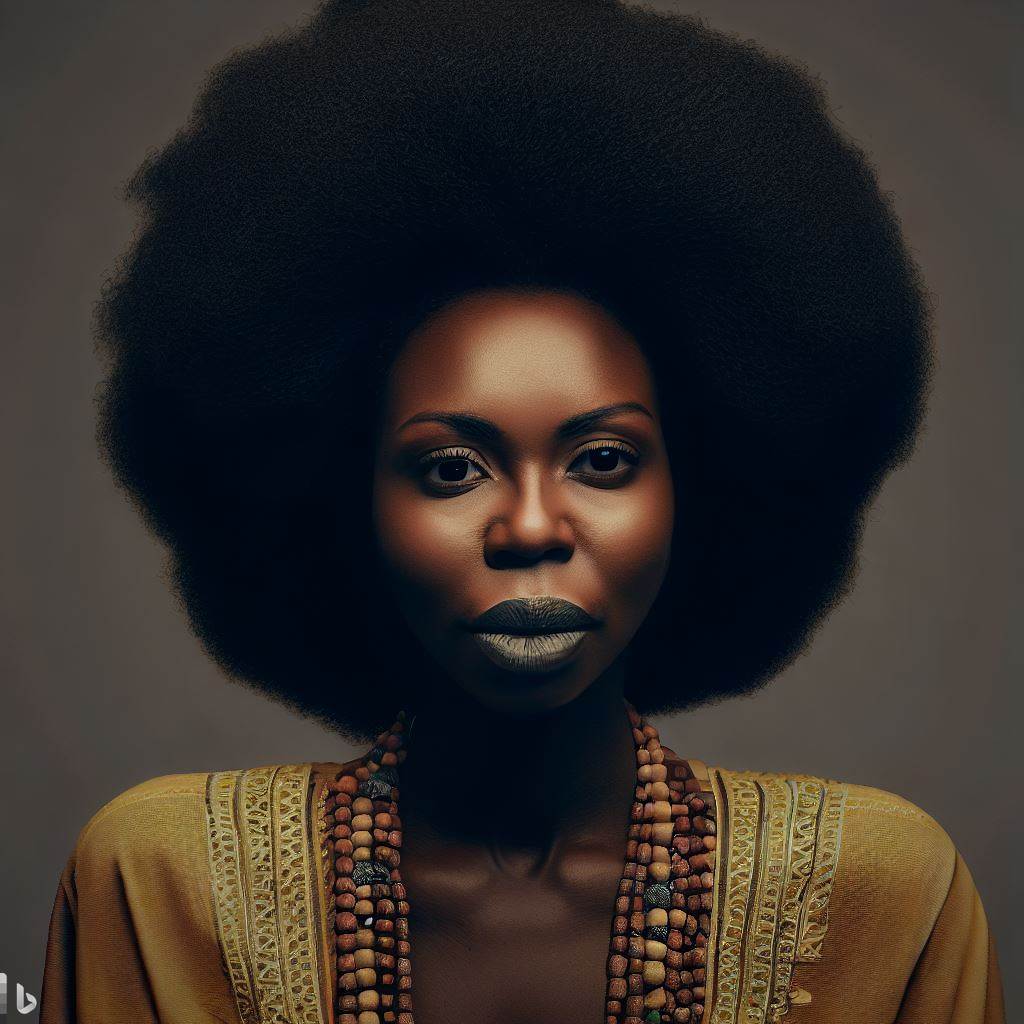Introduction
In recent years, Nigerian DJs have been experiencing a surge in popularity.
A. Thesis statement: challenges faced by Nigerian DJs in balancing tradition and modern beats
This section will delve into the challenges Nigerian DJs face in finding a balance between tradition and modern beats.
Nigerian DJs have been gaining widespread attention and becoming trendsetters in the music industry.
1. Challenges faced by Nigerian DJs in balancing tradition and modern beats
As they rise to prominence, they face a unique set of challenges that arise from trying to reconcile tradition with contemporary music styles.
- The clash between preserving cultural heritage and embracing modern beats presents an ongoing struggle for these DJs.
- One of the main challenges Nigerian DJs encounter is the pressure to conform to traditional expectations while still appealing to a modern audience.
- Another obstacle faced by Nigerian DJs is the constant need to stay relevant and adapt to changing music preferences.
- Moreover, Nigerian DJs face societal and familial pressures, as many expect them to prioritize maintaining tradition over exploring modern sounds.
- This conflict often leads to internal dilemmas and external criticism, forcing DJs to navigate a fine line in order to preserve their cultural identity while embracing their artistic freedom.
2. Balancing tradition and modern beats
Nigerian culture is rich and diverse, with various traditional music genres deeply rooted in the heritage of the country.
- However, the younger generation has grown up surrounded by global influences and is more inclined towards contemporary music styles, such as Afrobeat and hip-hop.
- DJs must skillfully blend these traditional and modern sounds, finding a delicate balance that respects their cultural roots while catering to current trends.
- The music industry is dynamic, with new genres and sub-genres emerging regularly. DJs must keep up with these evolving trends, ensuring their playlist remains fresh and innovative.
- At the same time, they must also ensure that they introduce traditional elements into their performances, providing a unique cultural identity.
Basically, Nigerian DJs are confronted with numerous challenges as they try to strike a balance between tradition and modern beats.
They must carefully blend traditional cultural elements with contemporary music styles, adapt to evolving trends, and navigate societal expectations to stay true to their artistic vision.
These DJs play a pivotal role in preserving Nigerian heritage while pushing the boundaries of musical innovation.
Background on Nigerian DJs
A. Brief history of DJ culture in Nigeria
- DJs in Nigeria have a rich history that dates back to the 1960s.
- It started with the emergence of radio disc jockeys who played popular music on the airwaves.
- In the 1970s, with the rise of nightclubs, DJs began to play live sets at these venues.
- These DJs played a mix of imported music from America and Europe, as well as local music genres like Afrobeat and Highlife.
- The 1980s saw the birth of mobile DJs who would travel with their sound systems and entertain at parties and events.
- As technology advanced, DJs started incorporating turntables and mixers to create a more seamless and dynamic mixing style.
B. The growing influence and recognition of Nigerian DJs globally
- Nigerian DJs have gained significant recognition globally, with several of them making waves internationally.
- They are now being invited to perform at major events and festivals around the world.
- DJs such as DJ Jimmy Jatt, Spinall, and Cuppy have received nominations and won awards both locally and internationally.
- Nigerian DJs are also becoming influential in the music industry by collaborating with popular international artists.
- The unique blend of traditional Nigerian music with contemporary sounds has drawn global attention to their work.
- Their ability to mix and fuse various genres has made Nigerian DJs stand out on the global stage.
C. The blend of traditional and modern music genres in their work
- Nigerian DJs are known for their ability to seamlessly blend traditional and modern music genres.
- They incorporate traditional Nigerian music genres like Afrobeat, Juju, and Highlife into their sets.
- At the same time, they incorporate modern genres such as hip-hop, R&B, EDM, and Afrofusion.
- This fusion of traditional and modern styles creates a unique and captivating sound that appeals to a wide audience.
- Nigerian DJs also use music from different Nigerian ethnic groups, showcasing the diverse cultural heritage of the country.
- They understand the importance of preserving and celebrating Nigerian musical traditions while embracing the global music scene.
In general, Nigerian DJs have a rich history that has evolved over time, from radio DJs to mobile DJs and now globally recognized artists.
Their ability to blend traditional and modern music genres in their work sets them apart and has gained them recognition on the global stage.
With their unique sound and collaborations with international artists, they continue to put Nigerian music on the map.
Read: Balancing Creativity & Market Demand: Nigeria’s Scriptwriters
The Traditional Challenge
A. Importance of Traditional Music and Culture in Nigeria
- Traditional music and culture hold immense significance in Nigeria, serving as a rich tapestry that connects its people to their roots, history, and heritage.
- It plays a vital role in uniting communities, reflecting their diverse customs, and fostering a sense of national pride.
- Nigeria’s traditional music encompasses a wide range of genres, each representing different tribes, regions, and religious beliefs.
- This music often narrates ancient stories, carries deep emotional messages, and acts as a conduit for cultural education and preservation.
- It is a thread that weaves together generations, bringing people closer to their ancestors and allowing them to understand their origins.
- Moreover, traditional music lends itself as a tool for celebrating life’s milestones and significant events, such as weddings, funerals, and religious ceremonies.
- It encapsulates the essence of joyful festivities and solemn rituals, enabling Nigerians to hold onto their traditions and pass them down to future generations.
B. DJ’s Struggle to Maintain Cultural Identity while Catering to Modern Tastes
- In the face of evolving musical preferences and the rise of contemporary beats, Nigerian DJs face an ongoing challenge of balancing traditional authenticity with the demands of modern listeners.
- They find themselves torn between preserving their cultural identity and adapting to the changing tastes of their audience.
- DJs are often revered as cultural ambassadors, responsible for showcasing Nigeria’s rich musical heritage to global audiences.
- However, with the rise of globalization and the dominance of mainstream Western music, they encounter pressure to conform to popular trends.
- This presents them with a dilemma; should they stick to their roots or incorporate modern elements?
C. Examples of Traditional Music Adaptations in DJ Sets
- To address this challenge, Nigerian DJs have ingeniously found ways to integrate traditional music into their sets while still appealing to contemporary sensibilities.
- They have become masters of fusion, blending traditional rhythms with electronic beats, creating a harmonious marriage of the old and the new.
- One example of this adaptation is the fusion of Afrobeats, a modern genre popularized globally by Nigerian artists, with traditional Yoruba drumming patterns.
- This coupling results in infectious grooves that pay homage to Nigeria’s cultural heritage while captivating listeners with an irresistibly catchy sound.
- Additionally, DJs often remix and sample traditional folk songs, infusing them with electronic instrumentation and contemporary production techniques.
- By doing so, they breathe new life into these timeless melodies, making them resonate with younger audiences who may not have been exposed to traditional music otherwise.
Essentially, the preservation of traditional music and culture in Nigeria is of utmost importance, acting as a thread that connects Nigerians to their roots and fosters unity.
Nigerian DJs face the challenge of maintaining their cultural identity while catering to modern tastes but have successfully found innovative ways to adapt traditional music into their sets.
These adaptations, such as Afrobeats fusion and remixing traditional folk songs, ensure that the richness of Nigeria’s cultural heritage continues to thrive in the modern musical landscape.
Read: Scriptwriting Contests to Kickstart Your Career in Nigeria
The Modern Challenge
A. Influence of Western music on Nigerian DJs
- Nigerian DJs have been greatly influenced by Western music, specifically genres like hip-hop, pop, and electronic music.
- DJs draw inspiration from Western DJs and producers, emulating their techniques and incorporating their style into their own performances.
- The popularity of Western music has led Nigerian DJs to experiment with different genres and introduce new sounds to their sets.
B. Pressure to stay relevant and incorporate modern beats into their sets
- Nigerian DJs face immense pressure to stay up-to-date with the latest music trends and incorporate modern beats into their sets.
- To attract and retain audiences, DJs must constantly adapt their playlists and ensure they are playing the freshest and most popular tracks.
- The availability of digital platforms, such as streaming services, has made it easier for DJs to access and discover new music, enabling them to stay relevant.
C. Impact of globalization and the need to appeal to diverse audiences
- Globalization has had a significant impact on Nigerian DJs, exposing them to a wide variety of musical styles and genres from around the world.
- DJs now have to cater to audiences with diverse backgrounds and musical preferences, necessitating a balance between traditional Nigerian beats and modern global influences.
- This demand for diversity pushes Nigerian DJs to constantly explore and incorporate different sounds and rhythms into their sets, creating a unique fusion of traditional and modern music.
In a nutshell, Nigerian DJs face the challenge of striking a balance between tradition and modern beats in their performances.
They are influenced by Western music and constantly strive to incorporate modern beats into their sets to stay relevant.
The impact of globalization has also contributed to the need to appeal to diverse audiences, leading DJs to explore different musical styles and create a unique fusion of traditional and global influences.
Despite these challenges, Nigerian DJs continue to evolve and thrive, showcasing their creativity and passion for music.
Read: Cultural Influence in Nigerian Scriptwriting Practices
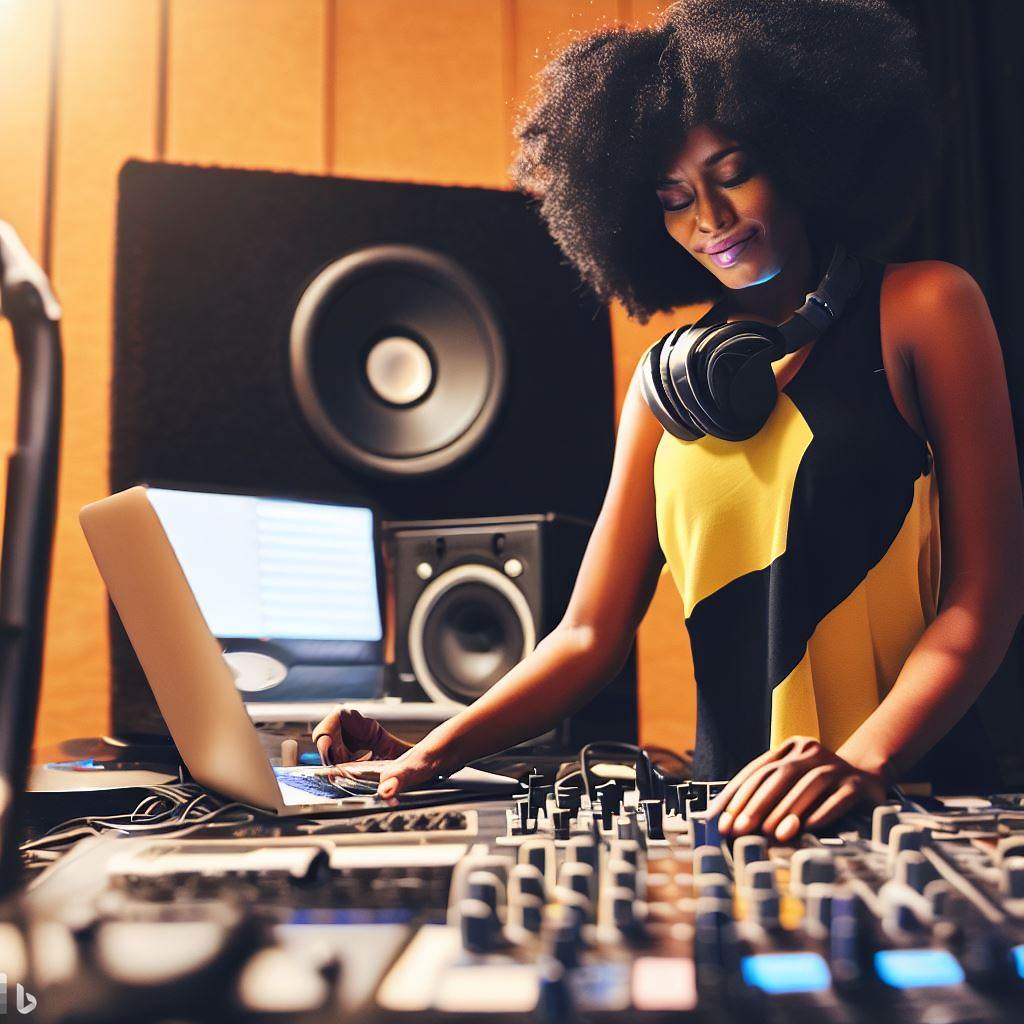
Bridging the Gap
A. DJs who have successfully balanced tradition and modern beats
- DJ Obi: Known for fusing traditional Nigerian beats with popular international music, DJ Obi has gained recognition for his unique style.
- DJ Neptune: With his ability to seamlessly blend traditional Afrobeat rhythms with contemporary genres, DJ Neptune has made a name for himself globally.
- DJ Spinall: This talented DJ has mastered the art of mixing traditional Nigerian highlife music with modern afro-pop sounds, captivating audiences worldwide.
- DJ Cuppy: Often incorporating traditional Nigerian drum patterns into her DJ sets, DJ Cuppy has successfully merged tradition and modern beats.
B. Innovative techniques and approaches used by these DJs
- Mashups: These DJs craft unique mixes by combining traditional Nigerian songs with modern beats, introducing listeners to a fusion of sounds.
- Remixes: They rework traditional Nigerian tracks, infusing them with modern elements, creating a fresh and exciting experience for the audience.
- Live instrumentation: Some DJs incorporate live instruments, such as talking drums, into their performances, bringing a traditional touch to their sets.
- Sampling: These DJs select snippets of traditional Nigerian music and incorporate them into their mixes, bridging the gap between tradition and modernity.
C. How they maintain cultural authenticity while embracing modern sounds
- In-depth research: These DJs invest time and effort into understanding the roots of Nigerian music and culture, ensuring authenticity in their selections.
- Collaborations: They team up with traditional Nigerian musicians to create tracks that strike a perfect balance between tradition and modernity.
- Vocal samples: By featuring traditional Nigerian vocal samples in their mixes, these DJs pay homage to their cultural heritage while embracing modern sounds.
- Respect for tradition: These DJs value the rich traditions of Nigerian music and strive to preserve its authenticity, even when incorporating modern beats.
Overall, the DJs who have successfully balanced tradition and modern beats, such as DJ Obi, DJ Neptune, DJ Spinall, and DJ Cuppy, have achieved this through innovative techniques and approaches.
Their use of mashups, remixes, live instrumentation, and sampling allow them to merge traditional Nigerian music with modern beats.
Additionally, their research, collaborations, vocal samples, and respect for tradition help them to maintain cultural authenticity.
By bridging the gap between tradition and modernity, these DJs bring a unique and vibrant musical experience to audiences worldwide.
Read: Nollywood vs Hollywood: A Scriptwriter’s Perspective
Overcoming Criticism and Resistance
A. Addressing the backlash faced by Nigerian DJs
- Traditionalists criticize DJs for blending tradition and modern beats, viewing it as a threat to cultural heritage.
- The fusion of traditional and modern music is seen as disrespectful and diluting the authenticity of the original sound.
- Backlash arises from traditionalists who believe DJs should adhere strictly to the boundaries of traditional music.
- Nigerian DJs face harsh criticism for exploring new soundscapes and incorporating elements of modernity into their mixes.
B. Challenges of pushing boundaries and breaking stereotypes
- Nigerian DJs must resist societal stereotypes and expectations to conform to traditional norms.
- Breaking away from stereotypes requires DJs to challenge conventional norms and pioneer new musical styles.
- DJ’s face resistance from both traditionalists and modern music enthusiasts, who view blending as inappropriate.
- Pushing boundaries invites criticism and requires DJs to have the courage and resilience to persevere.
C. Importance of DJs as cultural ambassadors and change agents
- Nigerian DJs introduce traditional music to wider audiences, acting as cultural ambassadors.
- Through their mixes, DJs bridge the gap between tradition and modernity, fostering unity and appreciation.
- Their ability to challenge stereotypes and showcase the evolving Nigerian music scene reshapes societal perceptions.
- DJs serve as change agents, promoting cultural diversity and inspiring others to embrace tradition in innovative ways.
Read: Nigeria’s Top Music Festivals and the Role of DJs
Conclusion
A. Recap the challenges faced by Nigerian DJs in balancing tradition and modern beats
African DJs, particularly Nigerian DJs, face significant challenges as they strive to balance tradition and modern beats in their music.
These challenges include the pressure to conform to Western standards, the fear of losing cultural heritage, and the difficulty in finding recognition for their unique sound.
B. Importance of preserving cultural heritage while embracing innovation
However, it is essential to emphasize the importance of preserving cultural heritage while embracing innovation.
Nigerian DJs must showcase their country’s rich musical traditions and promote African sound on the global music scene.
Infusing traditional elements into modern beats enables them to create harmonious fusions appealing to local and international audiences.
C. Positive outlook on the future of Nigerian DJs and their impact on the global music scene
Lastly, Nigerian DJs have a bright future ahead of them. With their remarkable talent and determination, they are breaking barriers and expanding the boundaries of African music.
Continuing to pioneer new sounds and collaborating globally, Nigerian DJs are leaving a significant mark on the music scene.
It is through the work of these DJs that African music is gaining recognition and respect worldwide.
Nigerian DJs create a musical revolution, preserving their heritage and blending it with modern beats. They celebrate their roots while embracing digital advancements.
Nigerian DJs, driven by passion and dedication, will conquer challenges in the dynamic music industry and thrive
In the future, Nigerian DJs will centralize their role, harmonizing traditional and modern beats in African and global music.

